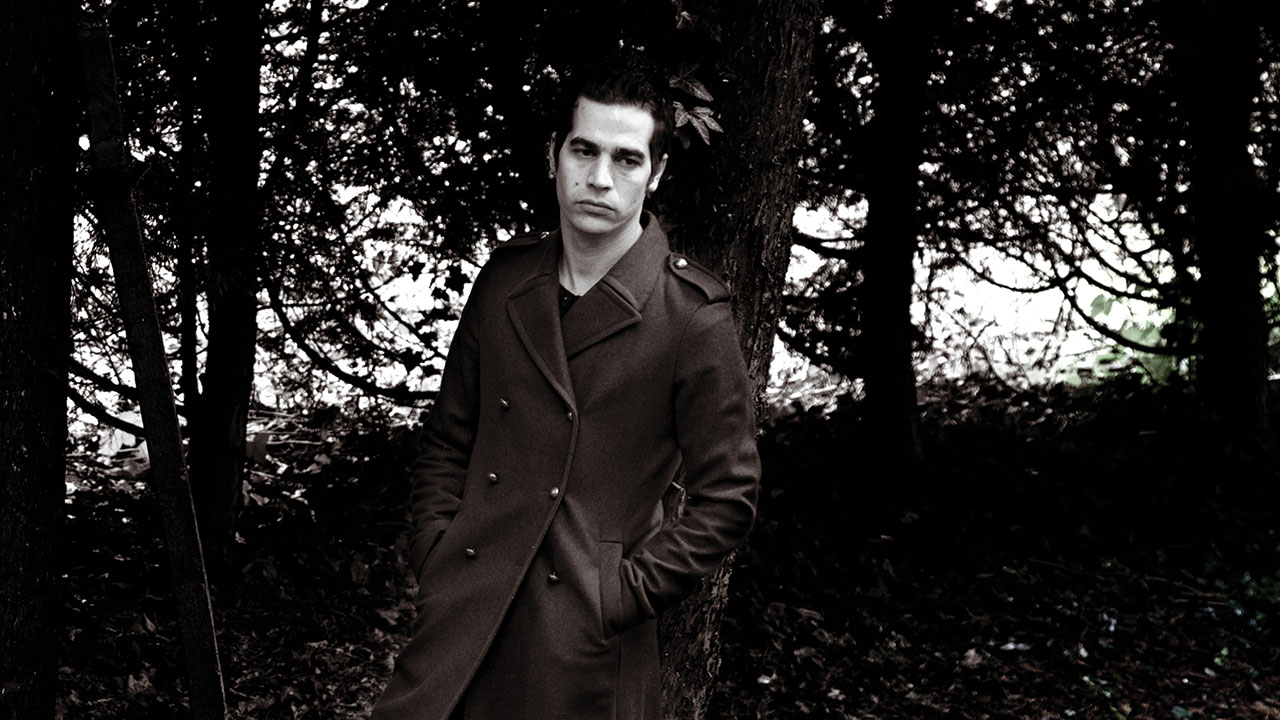
Newsflash: Steven Wilson is still in Blackfield. It turns out Wilson never really left, even though he publicly declared that he’d relinquished his stake in the group he co-founded with Israeli pop star Aviv Geffen back in 2001. in a March 2013 Facebook post, Wilson told fans that his involvement on the new record, Blackfield IV, would be as “a contributor rather than a member.”
The album tells a different story.
From the first notes of Pills, which features Wilson’s recognisable acoustic guitar, it’s clear that the prominent solo artist and founder of Porcupine Tree plays more than just a guest role on Blackfield IV. Though Geffen wrote all the songs on the album, the two co-founders of the band performed all the instruments apart from the drums. Wilson sings lead, harmony or backing vocals on all but one song. According to Geffen, Wilson is fundamental to Blackfield’s identity.
“Basically, it’s my songs – and has been since day one – with the sound and vision of Steven,” explains Geffen during a call from Tel Aviv. “It’s always the same blend between Steven’s guitar and my orchestra and string arrangements and pianos. That’s what makes the sound so special.”

However, the duo’s creative dynamic has certainly changed since the release of Blackfield’s self-titled debut in 2004 and Blackfield II in 2007. Those two albums combined individually written songs with co-written tunes. But Blackfield’s third album, Welcome To My DNA (2011) was almost completely written by Geffen. The one exception, the Wilson composition Waving, was an unused leftover originally intended for Porcupine Tree. Despite Wilson’s reduced workload on Welcome To My DNA, the British songwriter decided he needed to devote more time to his burgeoning solo career.
“One of the clichés about me is that I’m a workaholic,” Wilson told this writer last October. “The reason I have that reputation is that I do work hard and I do have my fingers in a lot of different pies. I’d juggled all those balls for a long time. I mean, No-Man didn’t tour a lot, but Blackfield would tour and Porcupine Tree would tour. Blackfield would make a record. Porcupine Tree would make a record. No-Man would make a record.
“I got to the stage about two or three years ago, pretty much with the genesis of the solo project, [that] if I’m going to take this seriously, I’m going to tour this as well. That’s it, someone’s going to have go overboard. The boat’s too heavy now.”
The obvious candidate was Blackfield. The collaboration was always cast in Geffen’s image, says Wilson, and Blackfield was essentially a vehicle to expose the Israeli’s four-minute pop songs to a global audience. Wilson, not wanting to hold his friend back, announced that Blackfield would continue under Geffen’s ‘sole curatorship.’ He also announced that he would no longer tour with Blackfield. The band’s 2011 concerts meant that Wilson wasn’t able to spend time with his ailing father, who died during the North American leg of the tour.
“I don’t want to get into his private life, but I guess it left him with a scar in his life,” says Geffen, quietly. “It was shocking.”
In the end, though, Wilson relented somewhat. He didn’t quit the firm – he merely demoted himself to junior partner.
“Steven was busy with his solo career and suggested that I should start and he’d join me later,” explained Geffen. “He was involved in every song, playing, singing and offering thoughts.”
Wilson also changed his mind on another front: in February 2014, he will join Blackfield for a full band tour of Europe and North America. “He was busy with his solo career, so we had a chat and we thought it would be better to wait until February to have him with us,” explains Geffen.
Wilson may be an indispensable ingredient in Blackfield’s sound, but the recipe isn’t the same as before. For starters, Geffen has leveraged his new position as band leader to rope in several high-profile guest singers. Anathema’s Vincent Cavanagh contributes a tender, finely enunciated vocal to the lush X-Ray; The Only Fool Is Me contrasts a serene harp with the anxious alto of ’s Jonathan Donahue; and Brett Anderson from Suede slinks through Firefly with a brooding vocal that swirls and billows like ink in water.

“On the new album, Steven gave me a long rope to have Brett Anderson and Jonathan Donahue,” says Geffen. “I don’t want to be stuck only in rock. I think we’re more symphonic pop. On Blackfield, you always hear the Floyd and ELO influences, the same kind of old heroes, but still I think we need to progress.”
To that end, Geffen has created the most varied Blackfield album to date. On After The Rain, bright beams of Fender Rhodes keyboard emerge out of a heavy downpour of dubstep beats. The ballad Jupiter could have slotted right into the credit sequence of a 1970s James Bond film. Elsewhere, drummer Tomer Z lays down a chipper backbeat on Sense Of Insanity, a mid-tempo anthem that recalls U2 and Coldplay.
The most striking hallmark of the Israeli songwriter’s direction is the prominent use of orchestra throughout Blackfield IV. That didn’t always sit well with Wilson, who mixed the album for stereo and 5.1.
“We always got in the same fight about how loud to go with the orchestra,” says Geffen. “He wanted more guitar and drums, and I pushed for more French horns and orchestra.”
Another point of creative tension came with selecting which of Geffen’s songs would make the cut on Blackfield IV.
“There were some songs that I loved that he said, ‘No way is this going to be on Blackfield,’ because they were too poppy, too epic. So we dropped from 25 songs down to 11 because we had those arguments.”
The two musicians constantly spar in friendly debates. Geffen believes the Bee Gees are a better pop group than Wilson’s beloved Abba. Geffen worships Lennon, whereas Wilson praises McCartney. Wilson loathes singing contests on television; Geffen was a judge on Israel’s version of The Voice. But, just as often, they find common points of agreement. Case in point: the lyrical theme of the lead single, Pills.
“I believe that 70 per cent of the world these days are on pills,” explains Geffen. “We take pills to have sex, to feel happy, to feel calm. I think we are losing touch with human beings. It’s going in the same way with the iPhone scene. People aren’t stopping to enjoy the moment. We are just transferring videos and photos and files and we don’t enjoy life any more.”
Pills is one of several rockers on the album that exemplify the classic Blackfield sound. Geffen’s voice, which quavers with a slight rasp, trades verses and choruses with Wilson’s keening vocals on Springtime, Lost Souls and Kissed By The Devil. They’re each strong, memorable tunes. Geffen is quick to credit Wilson for sharpening the hooks of his songcraft.
“Me and Steven are pretty similar in our musical backgrounds. But, as an Israeli, I’m always adding more and more notes,” says Geffen. “Steven was my great teacher. He showed me that, sometimes, just one right note is better than a thousand notes.”
Geffen is so thrilled with how Blackfield IV turned out that he’s keen to get started on the next album. (His wish list of guests for Blackfield V? Thom Yorke, Bjork and Dave Grohl.) It remains to be seen how his ambitious plans will mesh with the demands of Wilson’s solo career. But the Israeli remains sanguine about maintaining his partnership with Wilson.
“As long as I am the leader of Blackfield, he will be there always.”
This article originally appeared in issue 38 of Prog Magazine.







